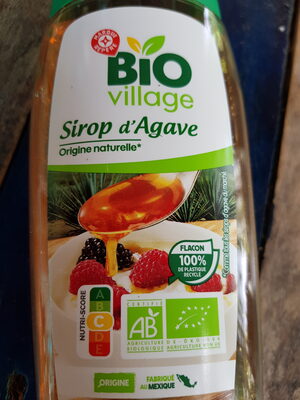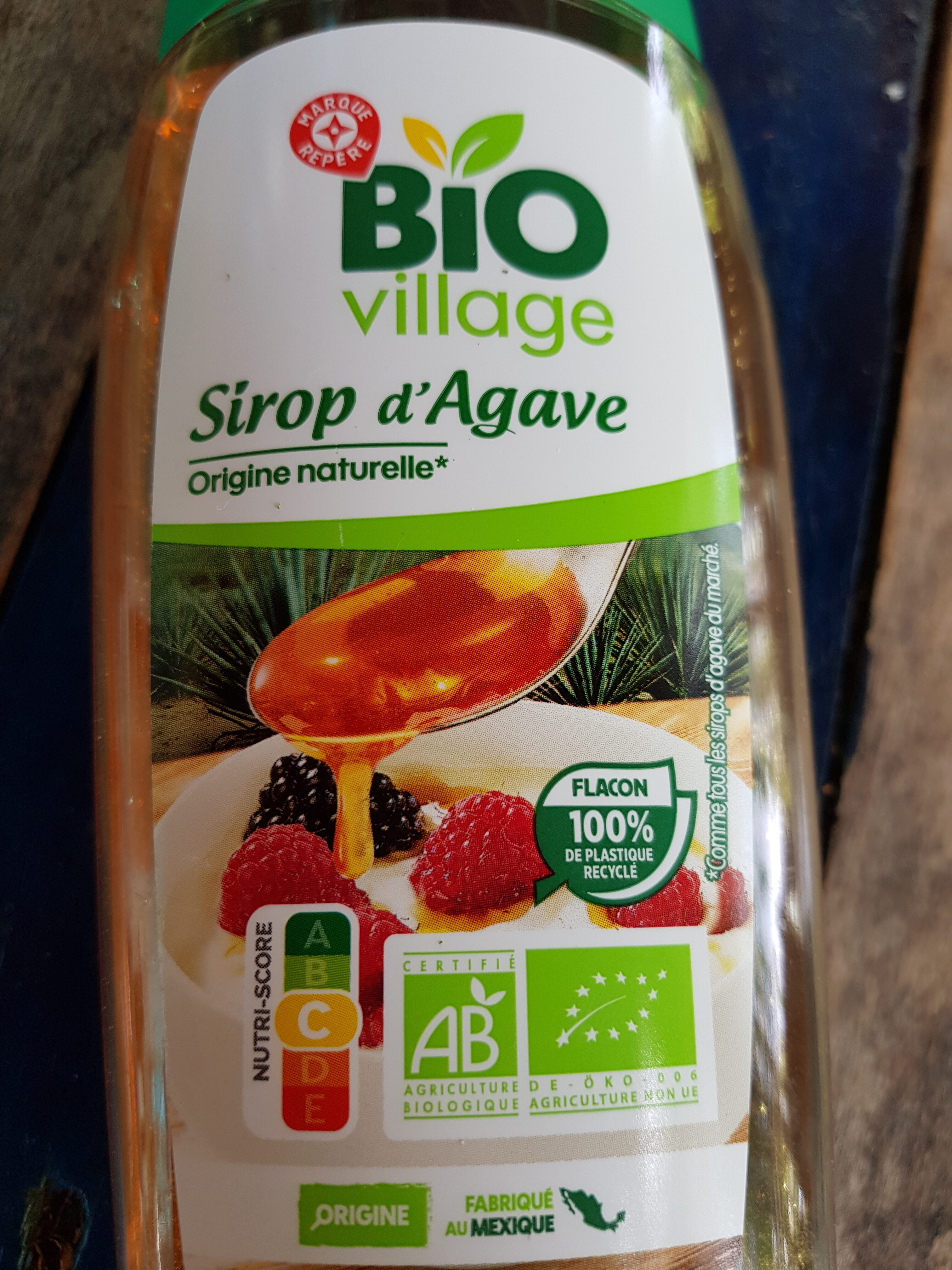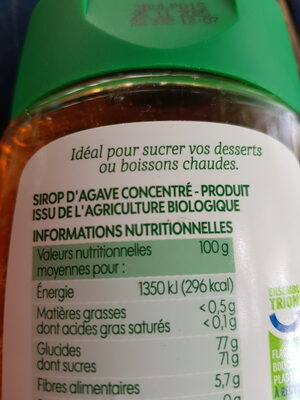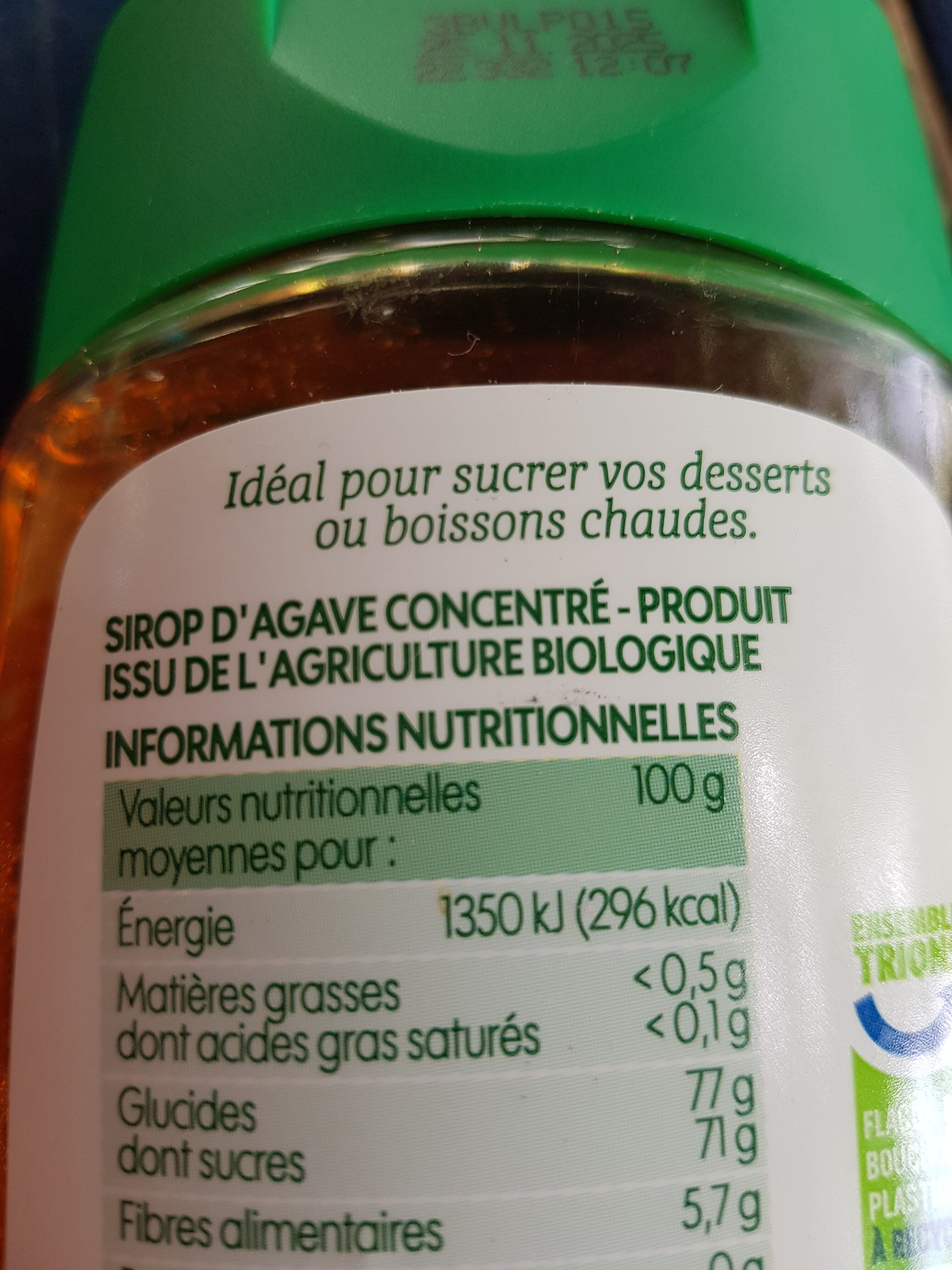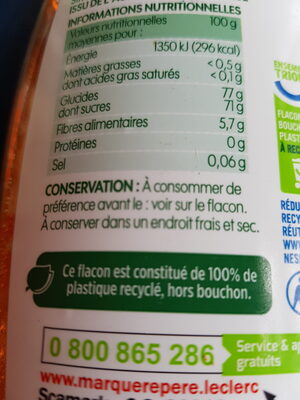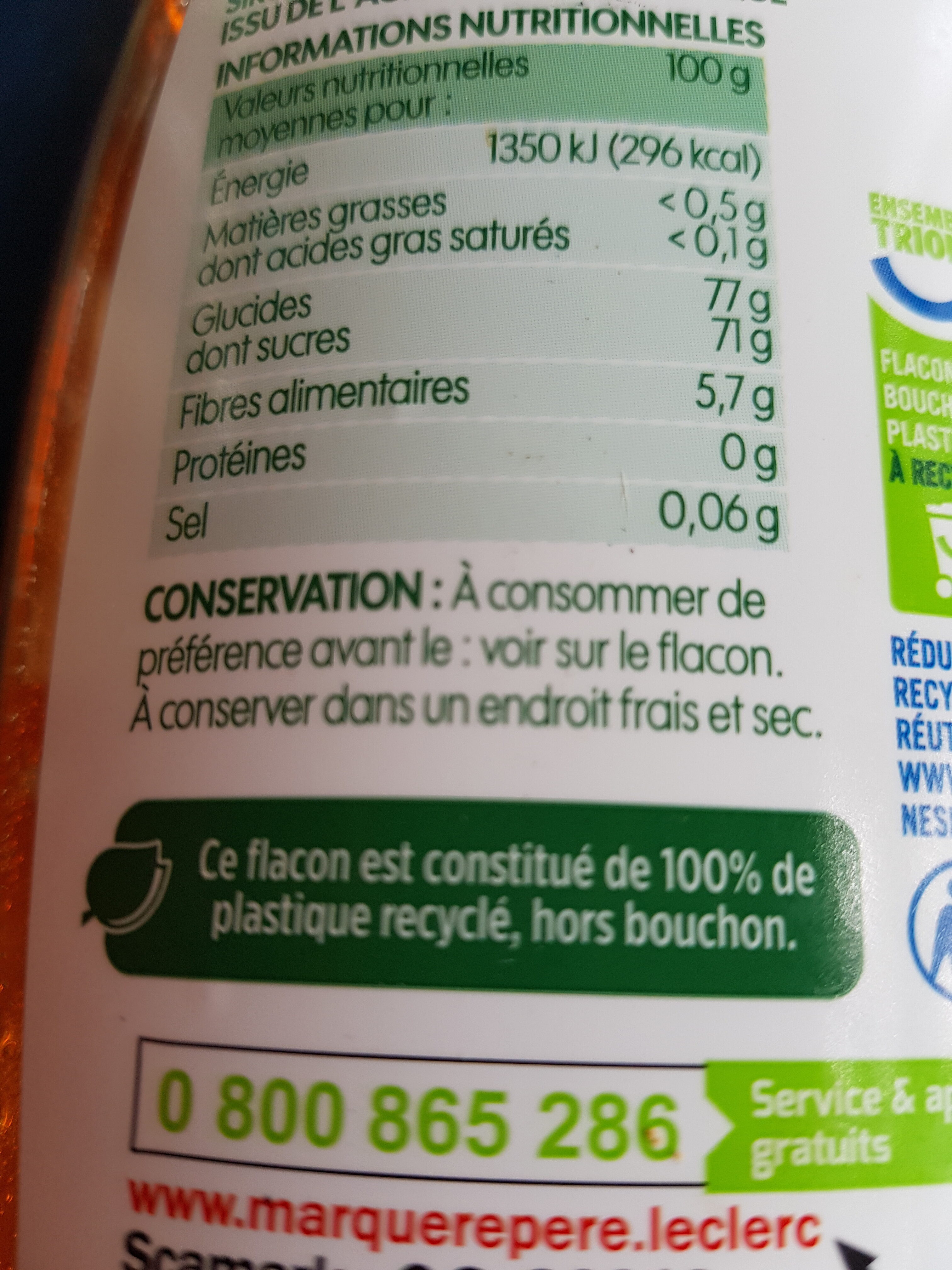sirop d'agave - Bio Village - 250 ml
Some of the data for this product has been provided directly by the manufacturer Scamark.
Barcode: 3564707101349 (EAN / EAN-13)
Quantity: 250 ml
Packaging: Plastic, Vial, fr:Flacon en plastique, fr:Opercule en plastique
Brands: Bio Village, Marque Repère
Categories: Sweeteners, Syrups, Simple syrups, Agave syrups, fr:Sirop d'agave Bio village
Labels, certifications, awards:
Organic, EU Organic, Non-EU Agriculture, MX-BIO-141, Nutriscore, Nutriscore Grade C, AB Agriculture Biologique

Origin of ingredients: fr:marque leclerc
Traceability code: EMB 94041N - Ivry-sur-Seine (Val-de-Marne, France)
Stores: Leclerc
Countries where sold: France
Matching with your preferences
Report a problem
Data sources
Product added on by philae
Last edit of product page on by inf.
Product page also edited by cvallier, date-limite-app, diotb, feat, giom, jcop, kiliweb, lamiss0106, odfu6302, openfoodfacts-contributors, org-scamark, packbot, quechoisir, quentinbrd, roboto-app, scamark, sebleouf, segundo, smoothie-app, spotter, tacite-mass-editor, teolemon, yuka.IutsB-e3Dd0ZHfrS0r8p5SmwSsHAW_NJIngJoQ, yuka.R3Y4eUxiZ2lvT2dsdU1NZnhRK05xKzh2bHNDcUFFaUtBUGNUSVE9PQ, yuka.UTRNeUUvdGVnL1kzeThSbHp6eUoyUFplOWFhS1JHR3RHODBlSWc9PQ, yuka.ZEtZbkZwb0R2cVVHbzhjRC9CclQzSTFRL01Da2NtMlhkTGNCSVE9PQ, yuka.ZHB0UkdmUW5tdllOaWNVNHBqMzU0TkZjeThiMGJGeVNBZkk0SVE9PQ, yuka.ZVowQkNMc3RoS1JYdDh3Q3hobUl4dHd1eGFlU1REbVZjT1U2SUE9PQ, yuka.sY2b0xO6T85zoF3NwEKvlmpsAuTOqzacExrlukzS5NWoIcTUXsBVyJDYGqo, yuka.sY2b0xO6T85zoF3NwEKvlnZ8c9jQswCZNxLixx2O5suHBabaRP5-x6_kDKs.
